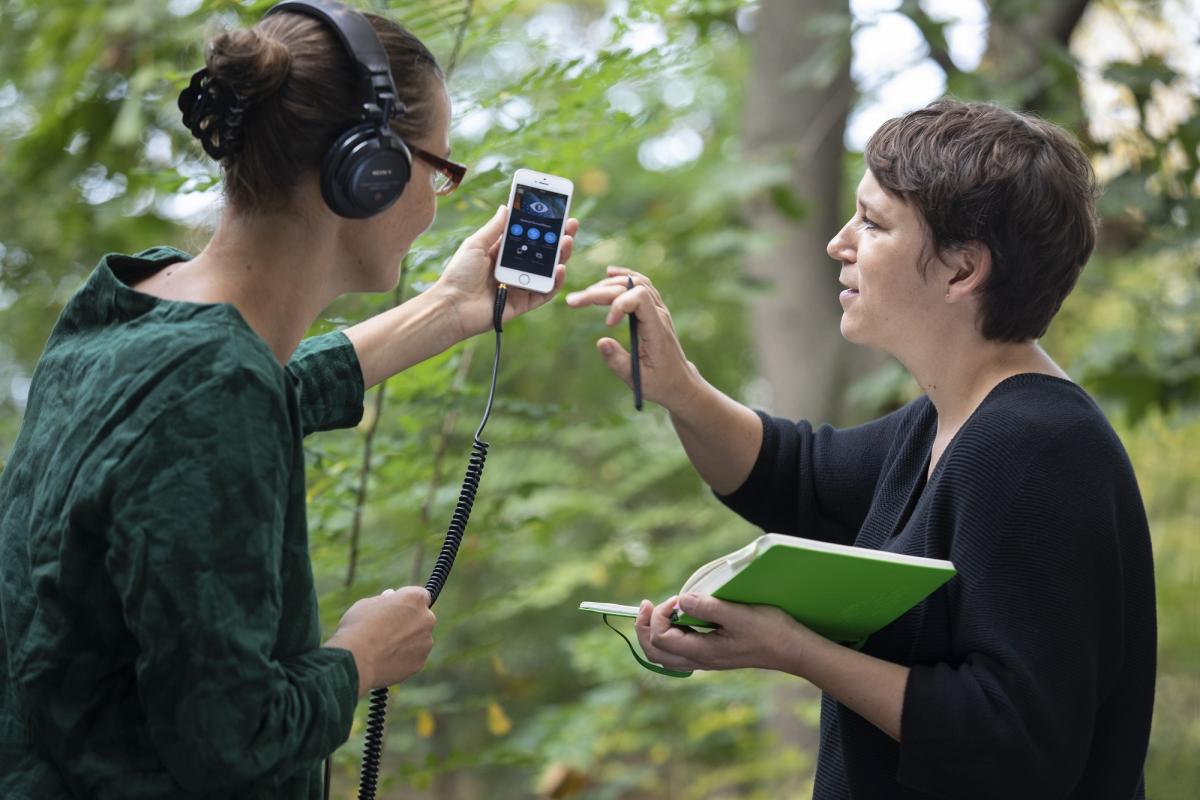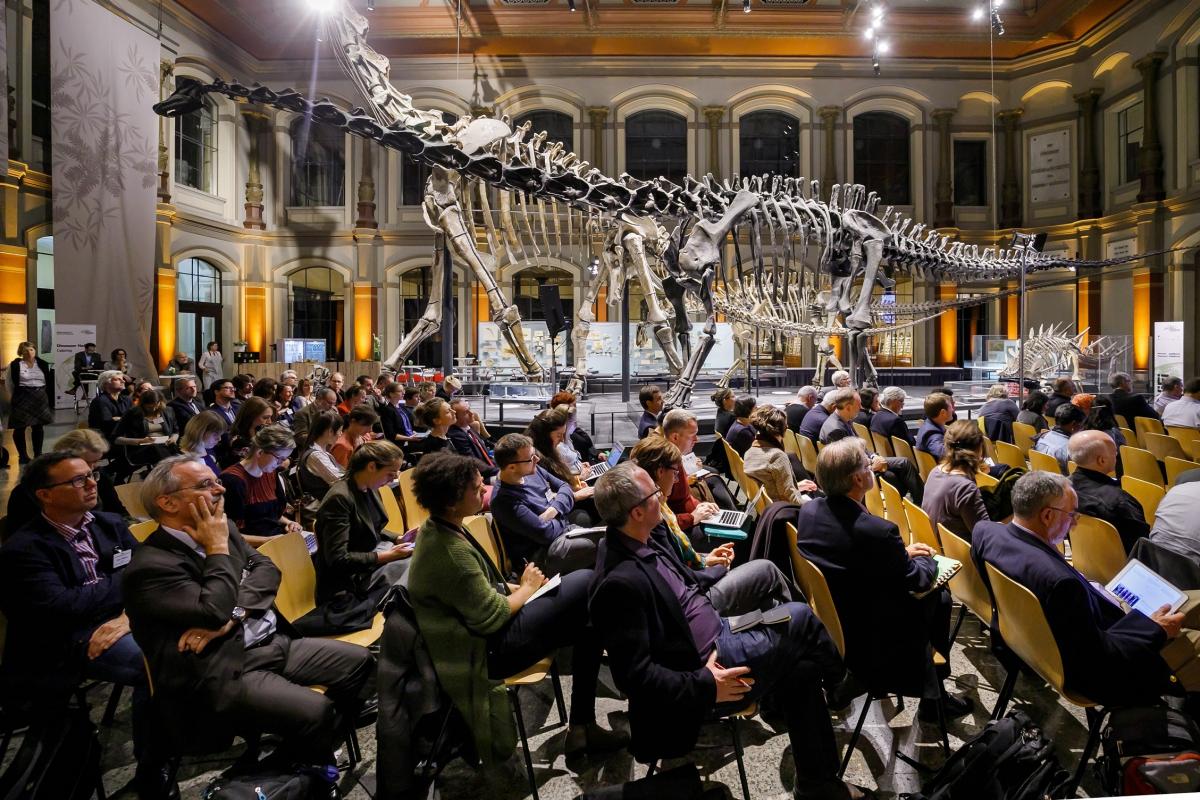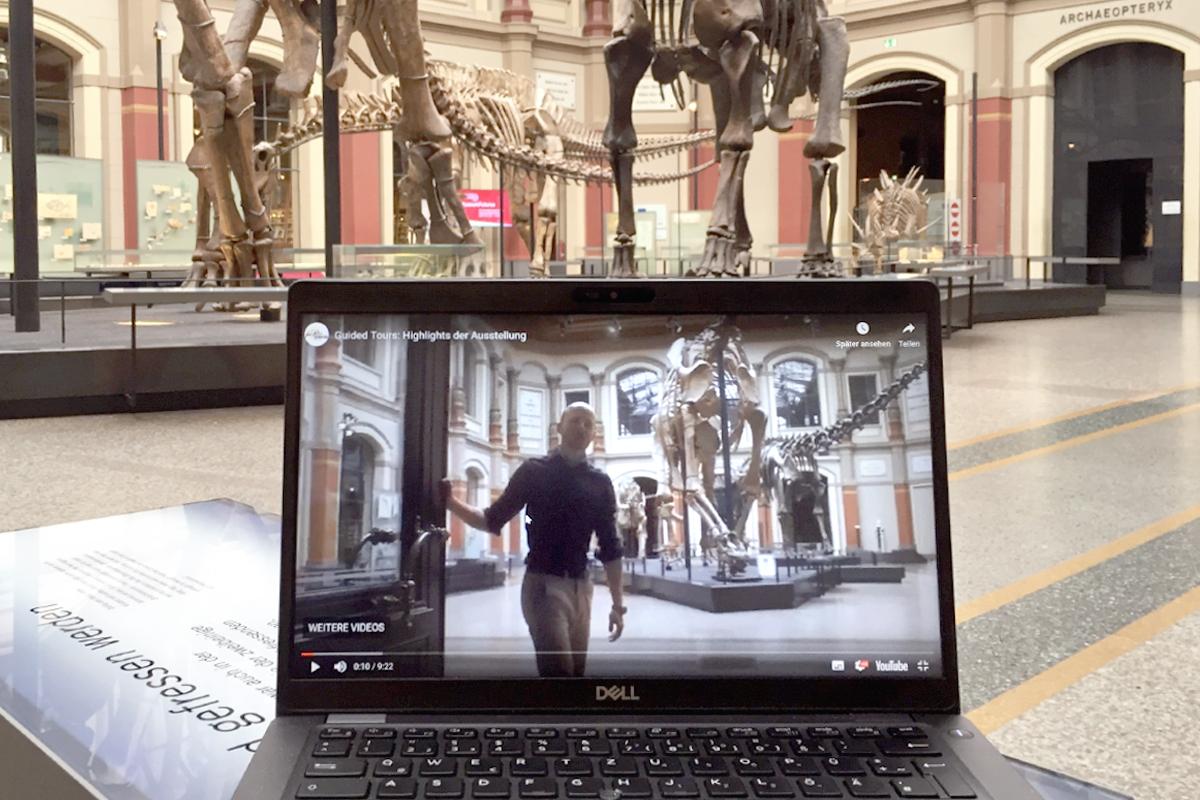The Museum für Naturkunde Berlin is one of the eight research museums of the Leibniz Association. Their collections total far more than 100 million objects. These form the basis for research on the history of the earth and biodiversity, cultural and technical history and the preservation of scientific and cultural heritage. With their research-based exhibitions at twelve locations in Germany, they reach millions of people every year. In doing so, they make an important contribution to the transfer of knowledge.
A world in motion
Globalization, migration and mobility not only set people, objects and knowledge in motion, but also the research museums themselves: How do museums react to current social transformations and challenges such as Covid-19? How do museums enable participation in research processes and co-production of knowledge? The second action plan of the Leibniz research museums is entitled A world in motion. The eight research museums open their doors in many different formats – especially virtual ones. You can read more on the website of the Leibniz Association.
The Museum für Naturkunde Berlin is dedicated to the effects and possibilities of a world in motion in workshops, lectures and discussion forums. Existing cooperations in education and conservation research will be further expanded and international networking will be strengthened.
Dialogue with society
Events and workshops invite visitors to explore the museum's archives, socially relevant research and current museum topics.
Transcription Workshop
The Transcription Workshop invites to actively contribute to the research work of the museum. Every two weeks historical documents are translated into modern formats in the advanced workshop. Courses for beginners to learn how to read the handwritings Kurrent and Sütterlin are offered regularly. On 28 and 29 October 2021 the Workshop Participatory Transcription Projects in Museums, Archives, Libraries – a Practical Exchange of Experience will lay the foundation for further cooperation between transcription projects.
Writing Workshop
The Writing Workshop invites to develop new perspectives on the Museums research and collections through creative writing.
Live Talks with scientists
- Live Talks Diverse Science, November 2020 – April 2021
- Live Talks #Parasites, April 2020 – July 2020
Science Communication Café
Every first Sunday of the month, scientists offer exciting insights into their work at the Science Communication Café.
Museum Talks
- Museum Talk Who comes to the museum? Who does not? Visitor research in museum practice, 14–15 December 2020. – Report
- Museum Talk Lost in space? Museums during times of pandemic digitality, 21–22 September 2020. – Video documentation
Wild Walk
With the Wild Walk, the Museum für Naturkunde Berlin started an experimental test run for pop-up exhibitions.
Further activities
- Event Mark Benecke: On the move as a researcher – around the world in 30 years, 23 September 2021. Video documentation
- Everybody Counts! A conversation on the traces of science and art, (citizen)science and biodiversity in the Anthropocene as part of the SAVE THE FUTURE Festival, 8 August 2021
Tools of knowledge transfer
The museum tests and researches innovative formats of science communication in the "Experimental Field", is building a competence center for Citizen Science and a Science Policy Lab to strengthen the exchange between science, society and politics. In cooperation with the other research museums, education and visitor research will be intensified.
The Experimental Field for Participation and Open Science
Opening up science: Interested individuals can get in direct contact with scientists - whether during coffee chats or live talks. Learn more about the Experimental Field.
- Workshop New Ways of communicating science and collections, 16–17 November 2020
- Live Talks with scientists
- Science Communication Café
The Biodiversity Policy Lab
The Biodiversity Policy Lab analyzes biodiversity policy and initiates public debates on it. The aim is to make the diversity of species, genes and ecosystems a public matter, that societies must ensure that they are preserved and used in the long term.
- Workshop Is nature striking back?, 10 December 2020
- A virtual dialogue: How economics can save the world, 21 June 2021
- The Doughnut as a Mindset: A Conversation on How to Redraw the World with Kate Raworth and Tino Sehgal, 16 September 2021
Development of a competence center for Citizen Science
All people can do research! But how can Citizen Science be more firmly anchored in organizations? How can discussions about Citizen Science and its benefits for policy making be strengthened? What promotes cooperation with political decision-makers? With workshops, conferences and platforms for encounters and exchange, Citizen Science is strengthened as an approach to research with society on a local and international level.
- Conference Knowledge for Change: A decade of Citizen Science (2020-2030) in support of the SDGs, 14–15 October 2021. Program, video documentation and conference declaration
- Digital workshops for Bürger schaffen Wissen
- Event Citizen Science for Policy Across Europe, 22 June 2021. – Video documentation
- Citizen Science Forum 2021 #digital, 6–7 May 2021
- White paper draft Citizen Science Strategie 2030 with subsequent online consultation
- Special Issue Citizen Science and the Role in Sustainable Development
- "Leitfaden für rechtliche Fragestellungen in Citizen-Science-Projekten"
Education and visitor research
The Leibniz Research Museums and Leibniz Institutes for Educational Research initiate and develop joint projects in educational and visitor research as well as educational formats in the Leibniz Centre of Excellence for Museum Education founded in 2021. In addition, the Museum für Naturkunde Berlin is expanding its visitor research within the framework of the action plan.
- Student competition of the Leibniz research museums in cooperation with F.A.Z.
- Results of the visitor study after the re-opening of the museum in 2020
- Report on the Museum Talk Who comes to the museum? Who does not? Visitor research in museum practice, 14–15 December 2020
- Conference Audience Development – Theory and Practice, 9–10 November 2021

Citizen science on animal sounds with the App Naturblick
Internationalization
International cooperation is being expanded in the areas of conservation and provenance research. In 2022, the Global Summit of Research Museums II will take place, as well as the Leibniz Museums Internship Next Generation, which promotes greater diversity among young museum professionals and creates space for the perspectives of structurally underrepresented individuals.
Network Conservation Research
The Network Conservation Research is promoting international exchange about conservation and collection management.
- Virtual Conference Plastics in Peril, 16–19 November 2020
- Workshop Basic Collections Techniques, 22–26 November 2021
- Workshop Focus on Conservation, 13–14 December 2021
Thinking and learning space: Guidelines for dealing with natural history collections from colonial contexts
The museum sheds light on the political, legal and ethical aspects of natural history collections in a broad discussion. Collecting and researching took place in colonial structures over centuries. Museums developed into archives of colonial materials and knowledge, in which the world was ordered and made manageable according to Western taxonomies. Following on from current discussions in science, society and politics, the focus of the project is on dealing with the colonial history of institutions and collections in the Museum. The aim is to develop recommendations for dealing with natural history objects from colonial contexts, which, among other things, should be included in a guideline.
Global Summit of Research Museums II at Deutsches Museum
Under the topic Objects in Motion – Museums in Motion, the second Global Summit of Research Museums is being prepared together with all research museums and the Smithsonian Institution. The GSRM addresses leaders from various museum sectors worldwide and will take place in October 2022 at the Deutsches Museum in Munich.

